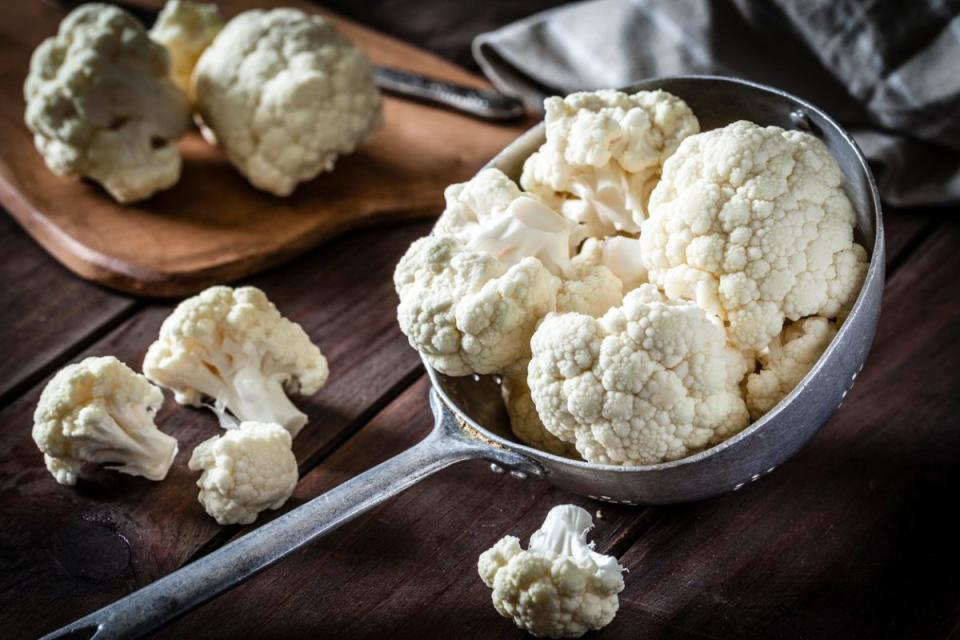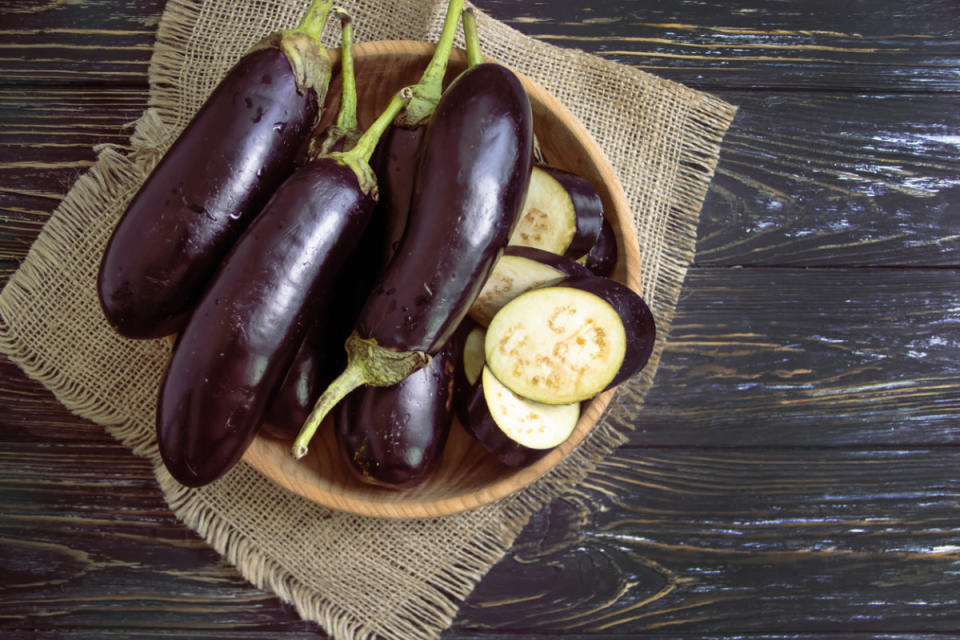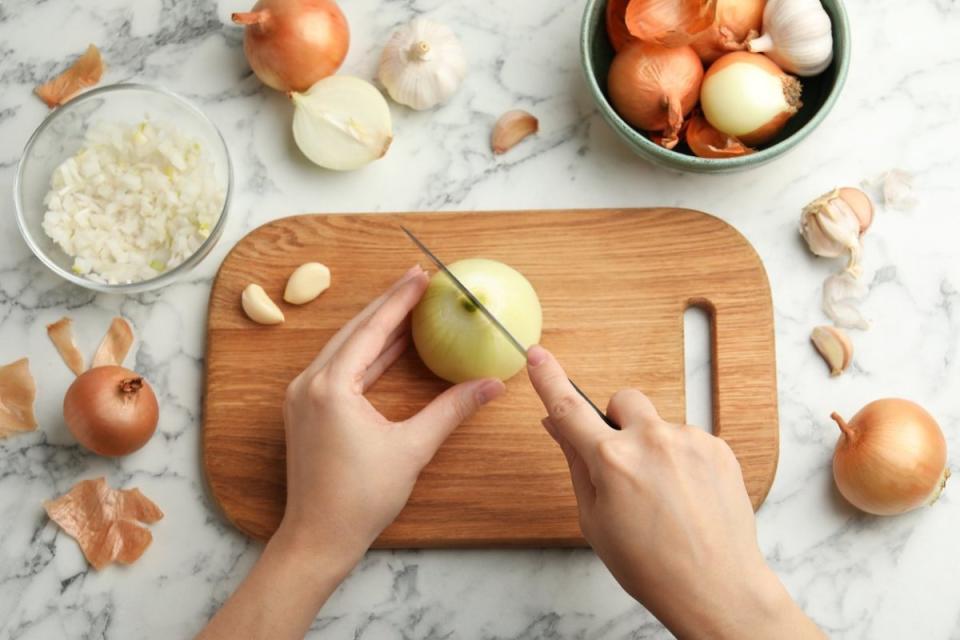These Are the 20 Healthiest Vegetables Of All Time, According to Registered Dietitians

Overhead shot of green vegetables.
While all vegetables are healthy, some pack more of a nutritional punch than others. Knowing which ones are the absolute most nutrient-rich of all is helpful intel for figuring out what to add to your cart (or even to grow yourself). Of course, buying vegetables you like and know how to cook with is important too; otherwise, that well-intentionally bought produce will end up dying in the crisper.
Can you guess which vegetables registered dietitians deem the absolute healthiest? Check out this healthiest vegetables list to see which ones take the crown and get ready to plan your shopping list accordingly. (Spoiler alert: Avocados and sweet potatoes make the list).
The 20 Healthiest Vegetables
1. Avocado
OK, the first one on the list is technically a fruit, but registered dietitian Erin Palinski-Wade, RD, says many consider it a veggie and its benefits are so plentiful that it deserves not only a spot on the list but the top spot. “One-third of a medium avocado provides 20 vitamins and minerals, unsaturated fat, and fiber,” she says. That’s a lot of nutrient variety!
Palinski-Wade says avocados are also helpful in keeping blood sugar levels steady and the unsaturated fats in avocados are linked to helping protect against type two diabetes and cardiovascular disease. Considering that cardiovascular disease is the number one cause of death in the U.S., it’s no wonder why avocado tops the list.
2. Broccoli
Palinski-Wade says she’s a big broccoli fan because they’re rich in glucoraphanin, a compound that is converted into the powerful antioxidant sulforaphane. “This may help to improve blood sugar and cholesterol levels as well as fight against oxidative stress,” she says. Glucoraphanin is linked to helping protect against certain types of cancer, a pretty major benefit. Broccoli is also an unexpected source of calcium, with 43 milligrams per cup.
3. Tomatoes
Like avocados, tomatoes are technically a fruit, but many people consider them a vegetable. Registered dietitian and The Mediterranean Diet Cookbook for Beginners author Elena Paravantes-Hargitt, RD, says they top her list because they’re rich in antioxidants. One in particular is lycopene, which is linked to reducing the risk of certain cancers and heart disease.
4. Cauliflower
These days cauliflower is everywhere, taking the form of rice, mashed potatoes and pizza crust. Considering the cruciferous veggie’s many health benefits, this is a good thing. Both dietitians favor it because it’s high in antioxidants that protect against inflammation as well as because it contains magnesium [which supports muscle and nerve function], phosphorus [needed to repair and protect cells] and potassium [important for cell health and to maintain a normal blood pressure].

iStock
Related: Here's What Happens to Your Body If You Eat Avocados Every Day
5. Hot peppers
While you may not be able to eat a ton of hot peppers in one setting—or hey, maybe you can—Palinski-Wade says that adding a few to your meals will benefit the body in many ways. “As a rich source of the anti-inflammatory compound capsaicin, hot peppers may help to reduce blood pressure levels as well as improve blood glucose levels,” she says. “As an added benefit, capsaicin provides metabolism benefits as well.”
6. Bell peppers
Another pepper that makes the list is bell peppers. Paravantes-Hargitt says that what makes bell peppers so beneficial is that they are high in vitamin C. Yep—it isn’t just fruit like oranges and strawberries that are good sources of the immune-supporting nutrient. One medium bell pepper has 152 milligrams of the nutrient, more than what you need for the entire day.
7. Spinach
It wouldn’t be a list of the healthiest vegetables without some greens, right? Of all the different types of greens, Palinski-Wade says spinach is the most nutritious. A run-down of the major nutrients it’s high in: iron, fiber, potassium, vitamin C, folate, vitamin A and vitamin E. “The nitrates in spinach may help to improve blood pressure while the rich source of lutein and zeaxanthin help to support eye health,” Palinski-Wade adds. She also loves this vegetable for its versatility. “This dark green leafy vegetable can be added into everything from smoothies to salads and even baked goods. My family can’t get enough of my spinach chocolate chip muffins,” she says.
8. Eggplant
The big reason why Paravantes-Hargitt says she loves eggplant is that it’s straight-up full of fiber. Each eggplant has a whopping 16 grams of the nutrient. She says that the type of fiber eggplants are particularly high in soluble fiber, which is key for digestive health and avoiding constipation. Eggplant also has 5 grams of protein, 49 milligrams of calcium and 77 milligrams of magnesium, among other nutrients.

iStock
9. Peas
Peas may be small, but Paravantes-Hargitt says that they’re another good source of soluble fiber. They’re also a great source of protein—a nutrient not many vegetables have in abundance. Peas are so high in protein that pea protein has become a popular powder, used to add to smoothies, protein bars and even baked goods.
10. Beets
Similar to spinach, cauliflower and hot peppers, Palinski-Wade says that regularly eating beets can help keep blood pressure levels from rising. This veg is also great for liver health, helping protect against oxidative damage and inflammation. If you work out a lot, Palinski-Wade says drinking beet juice or eating beets can help your body recover. Some studies suggest it may actually help with endurance too.
11. Carrots
You may already know that the beta carotene in carrots (which gives them their rich, orange color) is beneficial for eye health. But Palinski-Wade says it may also be protective against certain cancers such as lung cancer and colorectal cancer. Bugs Bunny was onto something.
12. Sweet potatoes
Both dietitians say that they like sweet potatoes because, like carrots, they're a good source of beta-carotene. Paravantes-Hargitt says that even though this tuber is sweeter than white potatoes, it’s lower on the glycemic index, meaning it won’t spike blood sugar levels as much. Sweet potatoes are also higher in fiber than white potatoes.
Related: The #1 Change I Noticed When I Drank Black Coffee Every Day for a Week
13. Brussels sprouts
“Brussels sprouts are rich in antioxidants, including kaempferol, which may help to reduce inflammation and cell damage,” says Palinski-Wade. Besides that, Brussels sprouts are also a good source of fiber, potassium and vitamin C.
14. Onions
Onions may make you tear up when you’re cooking with them, but registered dietitians rejoice over their health perks. Paravantes-Hargitt says this veggie is rich in inflammation-fighting antioxidants. The biggie it contains is quercetin, which is beneficial for cardiovascular health.

iStock
15. Kale
The second green to make the list, kale is worth the health hype. “Kale provides a good source of potassium along with calcium and vitamins A, B, C and K,” Palinski-Wade says. “As a fiber-rich, nutrient-packed food, adding it to meals can help to increase overall nutrient intake while helping to improve blood pressure and cholesterol levels.”
16. Cabbage
Whether you enjoy cabbage in a salad, charred on the grill or mixed into a stir-fry, Paravantes-Hargitt says you’ll be helping protect against inflammation thanks to the vegetable’s protective phytochemicals. Similar to onions, cabbage also contains quercetin, one reason why it’s so powerful in helping the body in this way.
17. Leeks
Paravantes-Hargitt says that leeks are another one of her top 20 vegetables when it comes to nutrition. Leeks—which are in the same veggie family as onions—have been shown to support the immune system, heart, gut, skin and eyes. Eating them regularly has also been linked to protecting against certain types of cancer, including breast cancer and gastric cancer.
18. Jicama
Jicama is a root vegetable that has a slightly sweet and nutty flavor. “It provides a high-fiber, low-carbohydrate alternative to starchier root vegetables such as potato,” Palinski-Wade says, as to why it makes the list of healthiest vegetables. “The combination of fiber, antioxidants, potassium and nitrates that jicama contains may have a positive impact on both cholesterol and blood pressure levels.”
19. Spaghetti squash
“Spaghetti squash often can provide a higher fiber, lower carb alternative to traditional pasta,” Palinski-Wade says. Like carrots and sweet potatoes, spaghetti squash is high in beta-carotene and it also contains vitamin C and calcium.
20. Celery
The last vegetable to make the top 20 list is celery. “It contains the compound apigenin, which may offer anti-inflammatory, antiviral and antibacterial properties,” Palinski-Wade says. Maybe now we’ll look at the veggie in a whole new way and not just as a vehicle for peanut butter!
It bears repeating that all vegetables have nutritional benefits, so what’s most important is to go for ones you like—especially considering that the vast majority of people in the U.S. don’t eat enough of them. But if you want to grow or buy ones that pack as much nutritional density as possible, the vegetables on this list are the ones to go for. Make a goal of picking one or two vegetables from the list you don’t normally buy a week and look up recipes for ways to cook them. Over time, your diet will become robust with a whole garden variety of vegetables—including the ones that are the healthiest of all.
Next up: 25 Foods That Are Good for Your Heart, from Fruits and Veggies to Heart-Healthy Nuts and Seeds
Sources
Elena Paravantes-Hargitt, RD, a registered dietitian specializing in the Mediterranean Diet, founder of OliveTomato.com, and the author of The Mediterranean Diet Cookbook For Beginners.
Erin Palinski-Wade, RD, registered dietitian and author of four books, including 2 Day Diabetes Diet.

